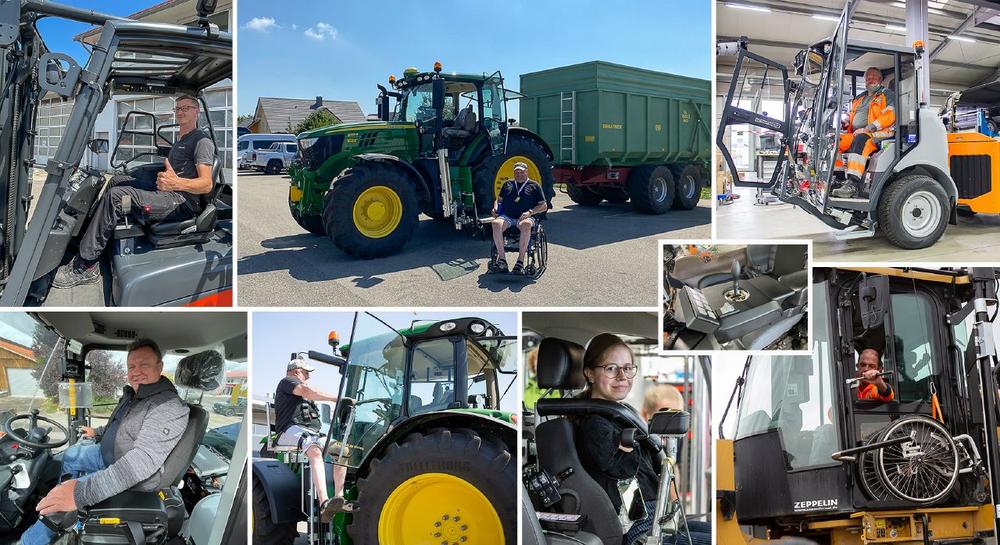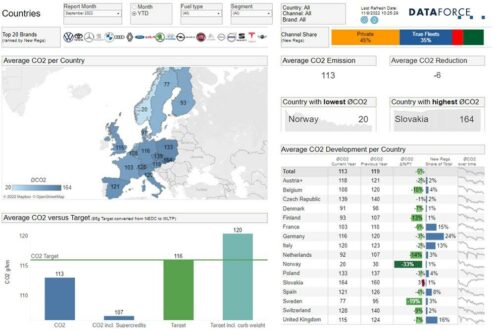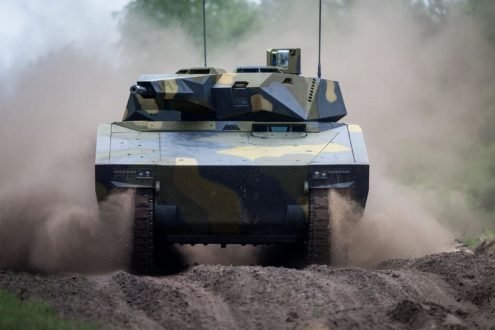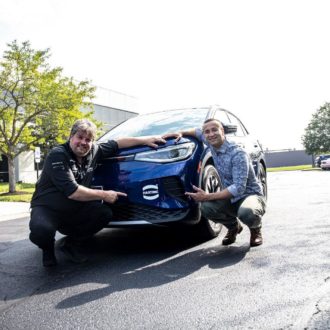
Dream job despite handicap
The way to work, routes at work, be it longer distances that have to be covered in the company or driving machines and transport vehicles during working hours. Mobility shapes the entire working world. But what happens when an accident occurs, are there possibilities for reintegration at work? These are questions that PARAVAN mobility consultants are confronted with on a daily basis. "The demand is increasing," knows Daniel Weber, who specializes in such cases. "And impulses/ perspectives for a possible reintegration into working life should already begin in the clinic or during the rehab stay." Inquiries come from those affected themselves, from entrepreneurs but also directly from construction and agricultural machinery dealers.
The possibilities for re-entry into working life, after an accident or in the case of a progressive disease pattern, are manifold. No matter whether experienced employees are to be kept on the job or the company succession has to be secured and the next generation has a handicap. Vehicles and machines can be individually adapted to a wide variety of clinical pictures, regardless of whether access to the higher cockpit of a construction machine, tractor or truck is required, for example by means of an external lift system for tractors or wheel loaders. If steering is no longer possible, the vehicle can be equipped with the Space Drive digital driving and steering system and then driven by joystick or controlled straight away by teleoperation – whether heavy construction and tractor machines or forklifts.
But inclusion in the workplace already starts with much smaller solutions, for example when it comes to equipping new machinery so that, for example, aging employees can use it without any problems even in their final years of work, e.g. by adding a step for more comfortable access, for example on a sweeper or a forklift truck. Flexible wheelchair solutions – such as the use of a power wheelchair with a standing function – can also simplify work processes or make them more efficient. This could also make new exciting fields of work accessible to people with a handicap, which they had not even envisaged, right through to getting to work in an individually adapted vehicle suitable for wheelchairs.
First and foremost is the question of feasibility, as well as the needs assessment. "This is what the project stands or falls on. It is important to develop a common basic understanding among all those involved and for those affected to describe the facts from their point of view," says Weber. A good understanding of the purpose of the project on all sides simplifies the approval process and later also the implementation. Often, those affected don’t even know what the options are. "This is important for the technical advisor, who ultimately has a say in the decision. Projects for reintegration into working life are much more complex than a vehicle or wheelchair adaptation," says Weber. In these procedures, there are often many parties involved who have to work hand in hand; from the employers‘ liability insurance associations, accident insurers, German pension insurance, the Federal Employment Agency to the employer.
The feedback shows how important it is to educate and encourage people in this area – on both the employer and employee sides. If necessary, companies must also be prepared to bear additional costs and at the same time recognize the advantage of retaining an employee – albeit under somewhat different conditions – with his or her competence and wealth of experience in the company in the long term. "Companies have to be willing to live inclusion as well," Weber says. "It’s an investment that will pay off."
Ten steps to reintegration
- limitation or accident occurs to an employee.
- obtain information in order to be able to continue employing the employee
- contact a conversion company
- make an appointment on site for technical needs analysis and feasibility
- application to the cost units
- costing/quotation by a qualified conversion company
- placing of order and project preparation
- project realization
- TÜV acceptance/ TÜV expert opinion
- project handover
PARAVAN GmbH is the world market leader for highly individual vehicle solutions for the disabled. Around 180 employees develop and produce individually adapted automobile conversions, electric wheelchairs and even specially specialized driver training. PARAVAN pursues a holistic approach with its "one-stop concept". The technological highlight is Space Drive, an intelligent digital control system based on the drive-by-wire principle. Thanks to the active redundancy of the servo motors, it is completely fail-safe and the first to be approved for road use. With the help of this innovation, severely disabled people, some without arms or legs, can drive independently and safely. It is not possible for these drivers to simply intervene in the steering wheel. Worldwide, Space Drive has proven itself on over one billion road kilometers in the last 20 years and is used by numerous industrial customers for test vehicles in the field of autonomous driving. The system is available as a retrofit kit with an open interface for all known vehicle types. http://www.paravan.com
PARAVAN GmbH
PARAVAN-Straße 5-10
72539 Pfronstetten-Aichelau
Telefon: +49 (7388) 9995-66
Telefax: +49 (7388) 9995-999
http://www.paravan.de
Pressesprecherin
Telefon: +497388999581
Fax: +497388999581
E-Mail: anke.leuschke@paravan.de
![]()



